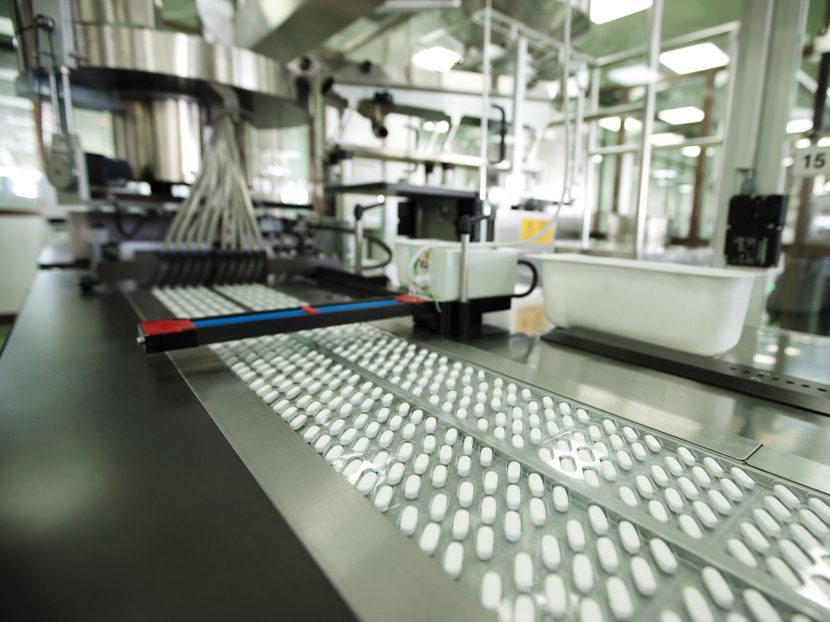Oil Prices Fall, Capex Projects Cut
However, there still is a substantial amount of capital expenditures slated for 2020.

Uncertainty continues to prevail in our industry as we enter the second month of quarter No. 2 of calendar year 2020. Our sector of the economy has, and continues to be, engulfed in a perfect storm of events.
The decrease in demand due to the COVID-19 crisis and the increase in crude production as a result of the Saudi/Russia failure to reach an agreement regarding production reductions have driven oil prices to lows reminiscent of the 1950s.
Global fuel demand has plunged as much as 30 percent due to the measures instituted to combat the COVID-19 virus — resulting in grounded aircraft, reduced vehicle usage and curbed economic activity.
Benchmark Brent crude oil prices hit an 18-year low last month and is trading around $34 a barrel, half its level at the end of 2019, dealing a severe blow to the budgets of oil-producing nations and the high-cost U.S. shale oil industry.
In the United States, gasoline demand plunged 48 percent to 5.1 million bpd in a three-week period, ending April 3, 2020.
On April 9, Saudi Arabia and Russia announced they have reached an agreement that could reach a cut of 20 million barrels per day. Details such as how the cuts would be divided, as well as how long they might remain in place, remain unknown as of this writing.
Disruption in the supply chain resulting from the measures initiated to combat COVID-19 have been experienced and may cause additional delays in the supply of offshore welding fittings and forged-steel flanges. Again, it is suggested that you keep in close contact with domestic manufacturers in the event of severe supply disruptions.
Spending Cuts, Mandated Production Cuts
ExxonMobil has officially cut it’s 2020 capital expenditures by 30 percent and is lowering cash operating expenses by 15 percent, responding to low energy prices resulting from over supply and weak demand due to the COVID-19 pandemic crisis. The revised capex is expected to be about $23 billion, down from the announced $33 billion.
The 15 percent decrease will be driven by actions to increase efficiencies and reduce costs, as well as expected lower energy costs.
The greatest share of capex spending reductions will be in the Permian Basin, where short-cycle investments can be more readily adjusted to respond to market conditions. ExxonMobil said in a press release, as reported by Industrial Info: “Reduced activity will affect the pace of drilling and well completions until market conditions improve.”
ExxonMobil has come out in opposition to mandated oil production cuts by Texas energy regulators, joining Occidental Petroleum and other large oil companies in opposing the idea.
The free market is “the most efficient means of sorting out the extreme supply-and-demand imbalances we now are experiencing,” the company says.
The Texas Railroad Commission, which has the authority to mandate production curbs in the state, will consider a proposal, as of this writing, submitted by Parsely Energy and Pioneer Natural Resources to require larger oil producers to cut output by 20 percent beginning May 1.
North American exploration and production (E&P) companies plan to reduce spending in 2020 by 36 percent, relative to the levels of 2019, equivalent to a more than $24 billion cut in 2020. Of the 44 North American E&Ps that have made spending announcements for 2020, 41 are cutting relative to 2019 levels.
Low oil prices and the lack of demand worldwide are driving the spending cuts around the world. The largest cuts are coming from North American E&P companies, but international companies are also cutting spending by 20 percent to 30 percent, with a substantial part for some coming from U.S. investments.
Shell has begun a phased withdrawal from the Energy Transfer Lake Charles liquified natural gas project in Louisiana due to current market conditions. The plan called for converting Energy Transfer’s existing import terminal in Lake Charles to an LNG export facility. Energy Transfer still plans to continue the development in Lake Charles, taking over the role as lead project developer.
ONEOK Bakken Pipeline received permission to begin construction on its proposed 121 km gas pipeline in Williams County, N.D. With an estimated 30,000 bbl/d capacity, the pipeline will transport a mixture of Y-grade natural gas liquids (NGL) — including ethane, propane, butane, iso-butane, pentameter and natural gasoline.
The pipeline will originate at the Hess Corp.’s Tioga gas processing plant and end at an interconnection with ONEOK’s existing state line to Riverview NGL pipeline.
Bright Spot: Pharma-Biotech
Of all the essential industries, the pharmaceutical/biotech industry has, perhaps, become more important in light of the COVID-19 crisis.
In North America, there are more than 800 pharma-biotech projects that are currently under construction with a combined TIV of $29 billion. More than $12 billion new projects have been approved and more than $38 billion are in the planning stage.
Restoring U.S. production will be a trend in the pharma-biotech sector as we enter a post-COVID-19 economy. Recent experience has emphasized how important domestic production, supply chain and availability are to the nation.
The U.S. will see new production of active pharmaceutical ingredients and other pharma production return to our shores moving forward, notes Annette Kreuger, Industrial Info’s vice president.
Other Construction Updates
The MCAA’s 2020 convention in Maui, Hawaii, was cancelled at the last minute due to the concerns and pending restrictions on travel and social distancing. Therefore, we are unable to report on the outlook for the mechanical contractor sector of the market for 2020.
We were made aware of the shutting down of nonessential construction in the Boston area and the expectation of others to follow, such as Philadelphia.
With all the uncertainty and capex spending cuts, there still is a substantial amount of capital expenditures slated for 2020.
With this in mind, we suggest you give greater reliance on domestically manufactured materials, including welding fittings and forged steel flanges. Increased scrutiny of imported materials is emphasized due to fraudulent practices of offshore manufactures to seek competitive advantage over domestic manufacturers.
Front-end costs savings can be, and are, offset by back-end costs incurred due to out-of-tolerances, alignment problems and liability exposure as expressed by several mechanical contractors and pipe fabricators.
PVF Roundtable News
The second meeting of the PVF Roundtable’s 2020 season has been postponed from the scheduled May 12 networking meeting to June 16, tentatively, followed by the PVF Roundtable charitable golf tournament at The Clubs at Kingwood in Houston, tentatively scheduled for June 22.
The June 22 meeting will begin at 4:15 p.m., ending at 8:00 p.m., and will be held at The Bell Tower on 34th in Houston. Please refer to the PVF website for further updates regarding scheduling for the networking meeting and golf tournament due to the COVID-19 crisis.
The PVF Roundtable board urges you and your associates to attend the networking meetings and the golf tournament — this is where the decision-makers from all sectors of the PVF industry meet to network and exchange information and ideas.
During these unusual times caused by the COVID-19 pandemic, the PVFRT board urges you to adhere to the presidential guidelines, including social distancing.





